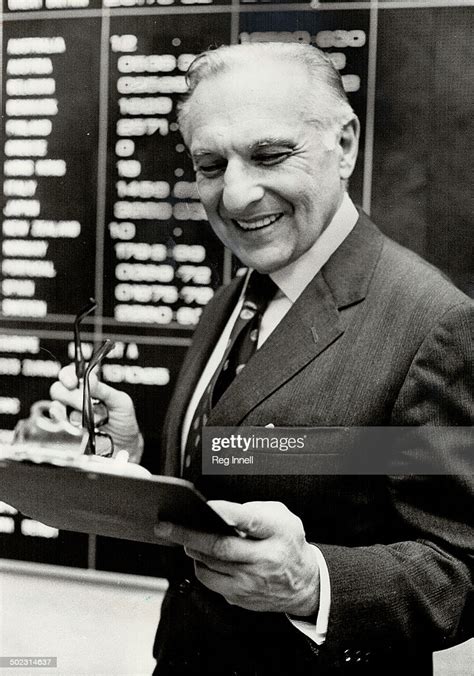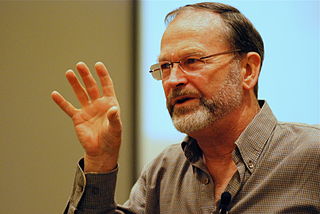A Quote by Llewellyn Rockwell
Welcome to the age of paper money, where governments and central banks can manufacture as much money as they want without limit. Gold was the last limit. Its banishment as a standard unleashed the inflation monster and leviathan itself, which has swelled beyond comprehension.
Related Quotes
It is a sobering fact that the prominence of central banks in this century has coincided with a general tendency towards more inflation, not less. [I]f the overriding objective is price stability, we did better with the nineteenth-century gold standard and passive central banks, with currency boards, or even with 'free banking.' The truly unique power of a central bank, after all, is the power to create money, and ultimately the power to create is the power to destroy.
Monetary reform, if it is to be genuine and successful, must sever money and banking from politics. That's why a modern gold standard must have: no central bank; no fixed rations between gold and silver; no bail-outs; no suspension of gold payments or other bank frauds; no monetization of debt; and no inflation of the money supply, all of which have proved so disastrous in the past.
So: if the chronic inflation undergone by Americans, and in almost every other country, is caused by the continuing creation of new money, and if in each country its governmental "Central Bank" (in the United States, the Federal Reserve) is the sole monopoly source and creator of all money, who then is responsible for the blight of inflation? Who except the very institution that is solely empowered to create money, that is, the Fed (and the Bank of England, and the Bank of Italy, and other central banks) itself?
Central banks are choosing to increase their gold holdings as a percentage of total reserves. They obviously think there is a reason to do that. It doesn't make sense to back up one currency with a hoard of other paper currencies. There needs to be a real anchor there. I think that central banks are well behind the curve. If you look at the percentage of above-ground gold controlled by central banks, it's historically low. Hence the fact that central banks are trying to increase their holdings. They've got a long way to go to get where they need to be.
Over two thousand years ago, Aristotle taught us that money should be durable, divisible, consistent, convenient, and value in itself. It should be durable, which is why wheat isn't money; divisible which is why works of art are not money; consistent which is why real estate isn't money; convenient, which is why lead isn't money; value in itself, which is why paper shouldn't be money. Gold answers to all these criteria.
Gold is unique because it has the age-old aspect of being viewed as a store of value. Nevertheless, it’s still a commodity and has no tangible value, and so I would say that gold is a speculation. But because of my fear about the potential debasing of paper money and about paper money not being a store of value, I want some exposure to gold.
If government manages to establish paper tickets or bank credit as money, as equivalent to gold grams or ounces, then the government, as dominant money-supplier, becomes free to create money costlessly and at will. As a result, this 'inflation' of the money supply destroys the value of the dollar or pound, drives up prices, cripples economic calculation, and hobbles and seriously damages the workings of the market economy.
Experience, however, shows that neither a state nor a bank ever have [sic] had the unrestricted power of issuing paper money without abusing that power; in all states, therefore, the issue of paper money ought to be under some check and control; and none seems so proper for that purpose as that of subjecting the issuers of paper money to the obligation of paying their notes either in gold coin or bullion.
Gold is not less but more rational than paper money. Money holds value so long as it is in limited supply; gold will always be in limited supply, and would require real resources to produce even from the sea; paper and printing ink are not in limited supply. The gold system is much closer to a modern automatic scientific control system than the crude and relatively unstable system of paper.
More paper money cannot make a society richer, of course, – it is just more printed-paper. Otherwise, why is it that there are still poor countries and poor people around? But more money makes its monopolistic producer (the central bank) and its earliest recipients (the government and big, government-connected banks and their major clients) richer at the expense of making the money's late and latest receivers poorer.
To walk in money through the night crowd, protected by money, lulled by money, dulled by money, the crowd itself a money, the breath money, no least single object anywhere that is not money. Money, money everywhere and still not enough! And then no money, or a little money, or less money, or more money but money always money. and if you have money, or you don't have money, it is the money that counts, and money makes money, but what makes money make money?

































